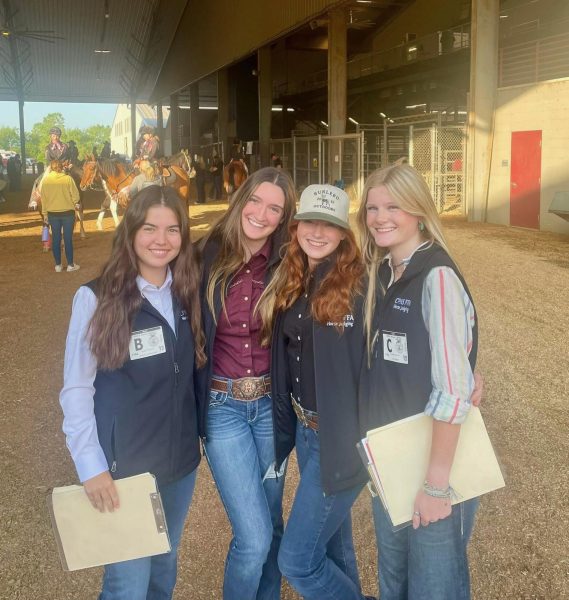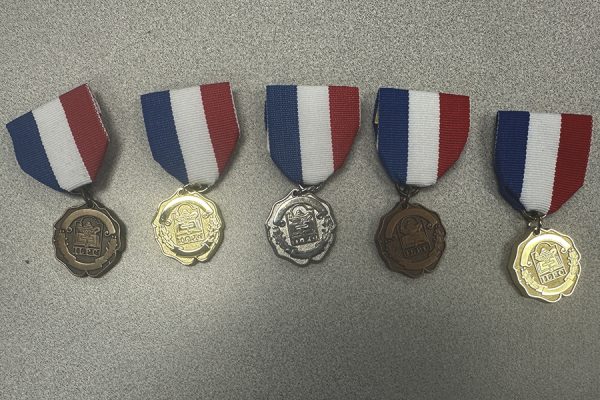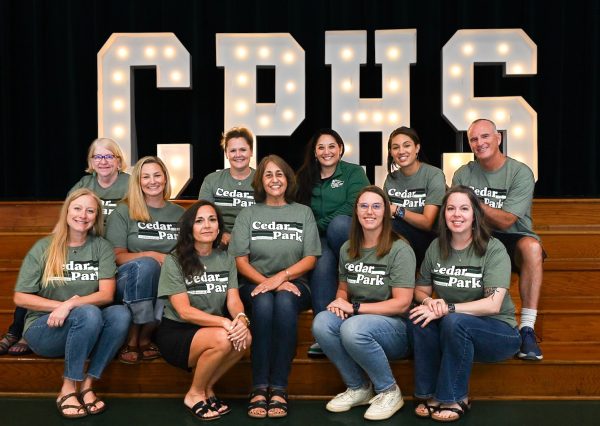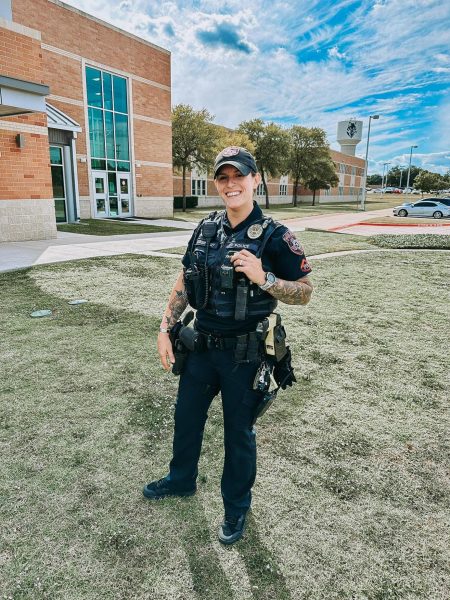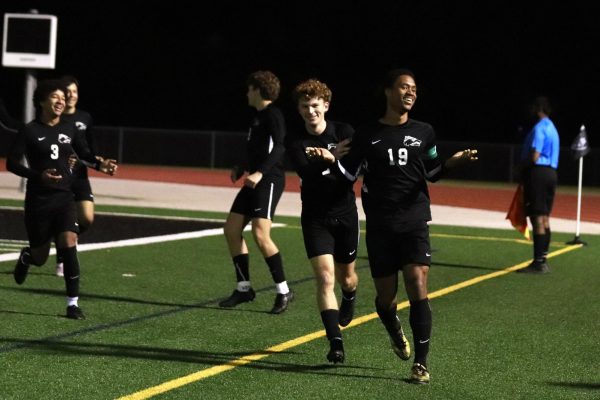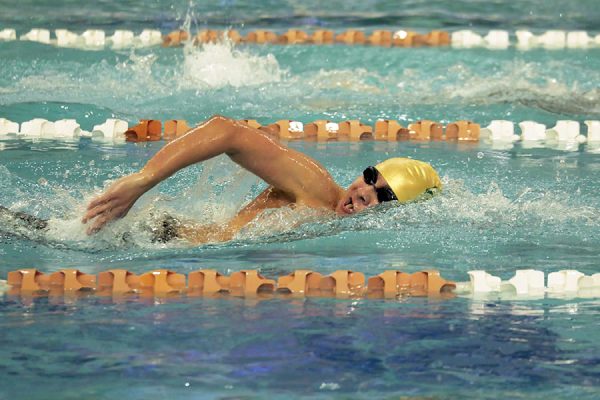A1 Tips to go D1
A Guide on How to Play Sports at the Collegiate Level
photo courtesy of Tracks Yearbook
Celebrating senior night, senior Jaelyn Grimm is honored at the game. Grimm will be attending Anderson University next fall. “I’m really excited to be able to compete with older girls and get that level of play, when I’m used to the high school level,” Grimm said. “And [to see] the competitiveness of the DII level and see the other girls competing and how they work and live their life in college.”
November 12, 2019
From larger sports like football and volleyball to smaller sports like tennis and bowling, certain high school athletes hope to play at the collegiate level in the future.
During the end of athlete’s junior year and the beginning of their senior year, hopeful athletes have already begun the recruiting process or have already been recruited, such as senior Jaelyn Grimm, who has committed to Anderson University in Anderson, South Carolina.
“I’m really excited to be able to compete with older girls and get that level of play, when I’m used to the high school level,” Grimm said. “And [to see] the competitiveness of the DII level and see the other girls competing and how they work and live their life in college”
Although the recruiting process may seem difficult, between filling out recruiting questionnaires, filming recruitment videos and even sharpening skill levels, the main thing many recruiting coaches look for is talent and academic success, according to Southwestern University recruiting coordinator and assistant baseball coach Mike Montgomery.
“I think typically kids who can take care of their academics in high school won’t have problems when they transition to the college level because they know how to budget their time between school, athletics and a job,” Montgomery said.
Due to the various rules set by National Collegiate Athletic Association, some athletes may be limited to the time they can reach out to coaches, so the best time to begin the recruiting process varies from athlete to athlete.
“We see a lot of kids transform themselves from their sophomore to junior year or junior year to senior year when we’re out recruiting,” Montgomery said. “It’s kind of a judgement based on each individual kid.”
In order to be recruiting by coaches, athletes must understand their own skill level in order to be prepared for college, according to Montgomery.
“[It’s important for kids] to understand their skill level and where they’re at,” Montgomery said. “If they don’t run very fast, they need to work on their speed. If they don’t throw the ball hard, they need to work on increasing their arm strength.”
For younger athletes who are still unsure about the process, it’s best to work hard and to reach out to coaches, according to Grimm.
“If [younger athletes] want to play collegiately, I strongly recommend working hard every day in practice [and] staying on top of their recruiting process,” Grimm said.

![Posing with their UIL State Trophy, the Robolobos Van Halen Team beams with excitement after their win. “It was a team effort,” junior Noah Vo said. “I was happy because something happened in the first match and the match was also really close. So [when] they finally revealed it, I was pretty happy.” Photo courtesy of Amy Lovelace](https://cphswolfpack.com/wp-content/uploads/2025/05/IMG_0910-EDIT-1200x723.jpg)
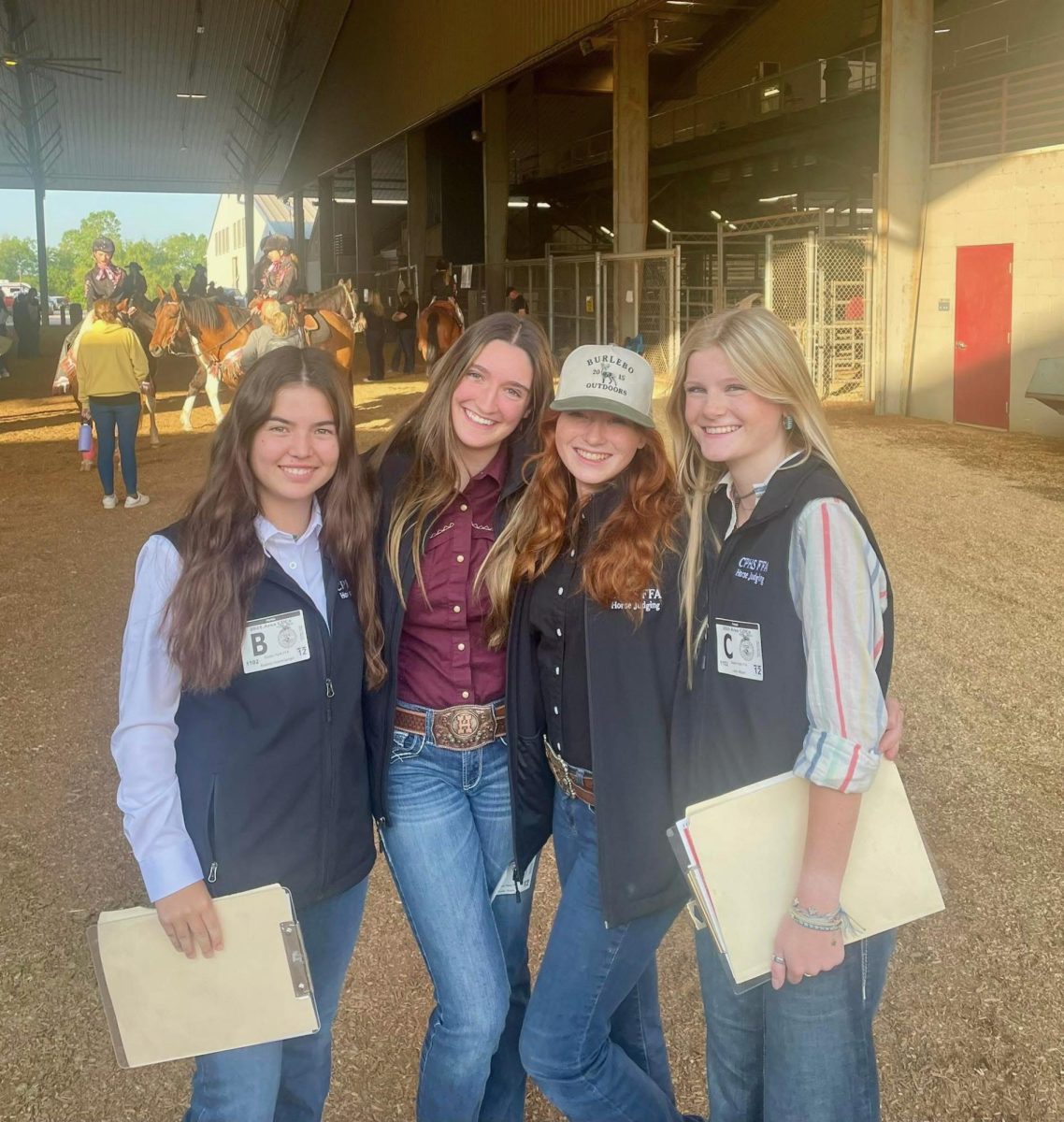
![Broadcast, yearbook and newspaper combined for 66 Interscholastic League Press Conference awards this year. Yearbook won 43, newspaper won 14 and broadcast took home nine. “I think [the ILPC awards] are a great way to give the kids some acknowledgement for all of their hard work,” newspaper and yearbook adviser Paige Hert said. “They typically spend the year covering everyone else’s big moments, so it’s really cool for them to be celebrated so many times and in so many different ways.”](https://cphswolfpack.com/wp-content/uploads/2025/05/edited-ILPC.jpg)













![Bringing her arm over her head and taking a quick breath, junior Lauren Lucas swims the final laps of the 500 freestyle at the regionals swimming competition on date. Lucas broke the school’s 18-year-old record for the 500 freestyle at regionals and again at state with a time of 4:58.63. “I’d had my eye on that 500 record since my freshman year, so I was really excited to see if I could get it at regionals or districts,” Lucas said. “ State is always a really fun experience and medaling for the first time was really great. It was a very very tight race, [so] I was a bit surprised [that I medaled]. [There were] a lot of fast girls at the meet in general, [and] it was like a dogfight back and forth, back and forth.” Photo by Kaydence Wilkinson](https://cphswolfpack.com/wp-content/uploads/2025/03/Kaydence-2.7-23-edit-2.jpg)
![As the support team sits and poses for a photo in the cafeteria with the counseling team they eagerly wait to start their day. "We [all] seem to be a team, I get up every day and there's days where I don't want to go to work today, but I'm thankful that I have a job and I'm blessed to have what I have," Christopherson said. Photo Courtesy of Julie Weltens.](https://cphswolfpack.com/wp-content/uploads/2025/01/AF9E8470-10D7-4C91-BF28-EC8F86BAB66C-1200x852.jpeg)
![Officer Stephanie Cash is in her second year as an SRO at CPHS. “Seeing [students] grow over the years has been kind of cool,” Officer Cash said. “Freshmen that [are] all over the place and then in the next couple of years get a little more squared away and go to class and do work and start thinking about the future. Being a part of a student's growth is the best way to measure my success as an SRO.” Photo Courtesy of Cedar Park Police Department's PIO, Alicia Gallagher.](https://cphswolfpack.com/wp-content/uploads/2024/12/CPHS-SRO-900x1200.jpg)
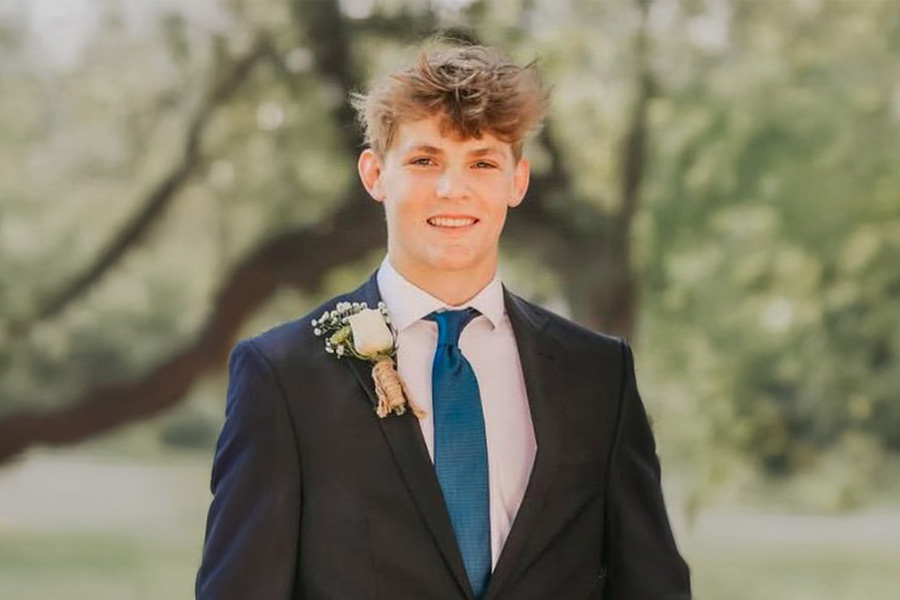

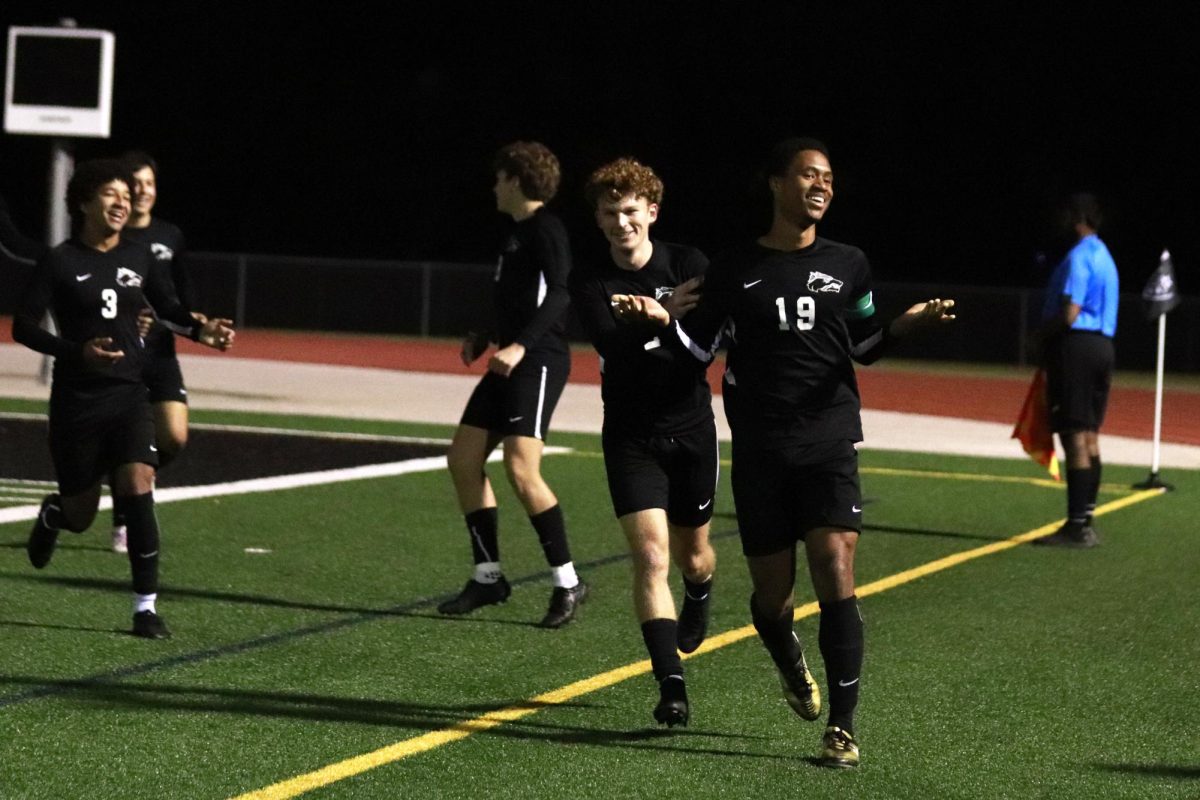
![Taking a breath as he raises his arm up and out of the water, sophomore Kaden Padilla swims the 500 freestyle at the UIL state meet on Feb. 21-22. Padilla placed 10th overall and second in the consolation final in the event, dropping two seconds. “My family was there, so being able to drop time for them was really special,” Padilla said. “It was awesome [finding out I advanced to the consolation finals]. I wasn’t expecting it, and I was very surprised. My parents being there definitely made me a lot happier knowing they got to see me swim in finals.” Photo by Skyler King.](https://cphswolfpack.com/wp-content/uploads/2025/03/kaden-padilla.jpg)

![Three defenders try to stop senior point guard Hope Edwards before the ball leaves her hands. The girls basketball team faced Liberty Hill on Feb 21, losing 58-40. “[My season was] definitely bittersweet,” Edwards said. It's definitely sad [because] I'm gonna miss all my teammates, my coaches and just the whole CP environment.”](https://cphswolfpack.com/wp-content/uploads/2025/03/julia-128-1200x800.jpg)













![Celebrating senior night, senior Jaelyn Grimm is honored at the game. Grimm will be attending Anderson University next fall. “I’m really excited to be able to compete with older girls and get that level of play, when I’m used to the high school level," Grimm said. "And [to see] the competitiveness of the DII level and see the other girls competing and how they work and live their life in college.”](https://cphswolfpack.com/wp-content/uploads/2019/11/grimm-900x600.png)



